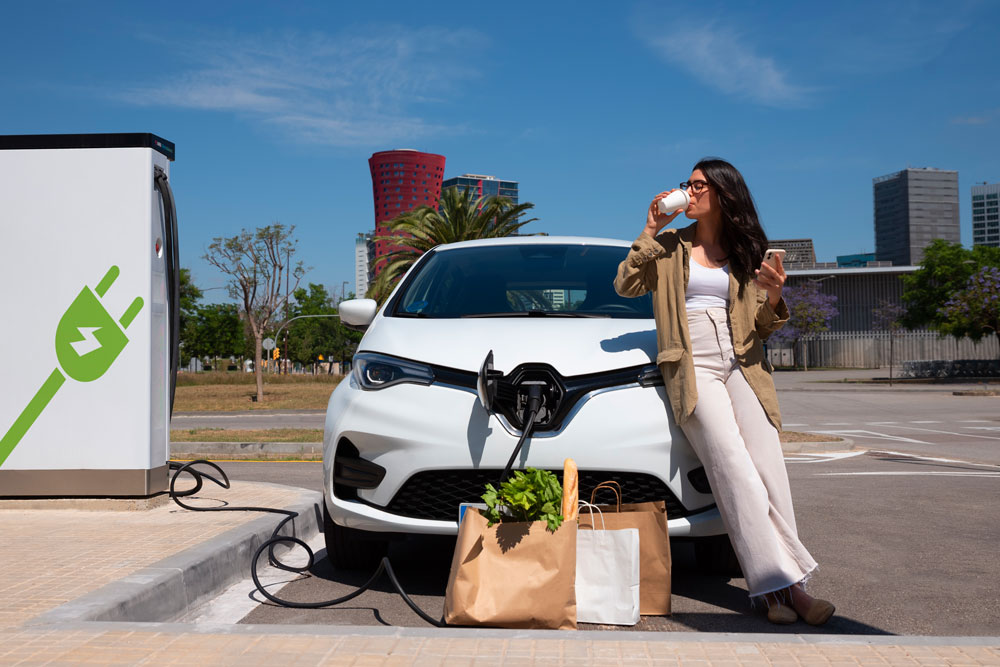Published:
June 01, 2024What are the most important features an online electric vehicle selling portal should have
For a online portal engaged in selling electric vehicle, mainly it has three stack-holder,
- Admin or Business owner of the platform,
- Dealer/Franchise
- Intended customers who are interested in buying/booking online for electric vehicle.
For the business owner/ Dealer, the portal should provide option for –
1. Comprehensive Vehicle Listings:
Provide detailed listings for electric vehicles, including specifications, photos, pricing information, and seller details. Users should be able to search and filter listings based on criteria such as make, model, price range, and mileage. This listing should also provide the dealer , to have their portfolio listing according to the geographic location and community server around and create personalized experience for the local people in and around the dealers locations serving their customers.
2. Integration with Financing Options:
Enable users to explore financing options for purchasing electric vehicles, including leasing, loans, and incentives or rebates available in their region. Integration with financial institutions or partners can streamline the financing process for buyers.
3.Charging Infrastructure Information:
The most important requirement for any electric vehicle is the recharging of the battery as and when needed. Therefore the portal should also provide information about charging infrastructure, including the locations of charging stations, types of connectors available, and compatibility with different EV models. This helps users plan their routes and ensures they have access to charging facilities and also make their alternative arrangement where they need to carry additional support for facilitating charging where there is no charging station.
4. Electric Vehicle Knowledge Center:
Keeping the customer informed about the features and benefits of EV vehicle, it is also important to offer educational resources and guides about electric vehicles and its different parts functioning, including information about battery technology, charging options, incentives and rebates, and maintenance tips. This helps educate consumers and promotes greater awareness and understanding of EVs.
5. Customer Reviews and Ratings:
Allow users to leave reviews and ratings for both vehicles and sellers, helping to build trust and transparency within the platform. Verified reviews from other buyers can influence purchasing decisions and provide valuable feedback for sellers.
6. Customer Care Support and Assistance:
Offer customer support services to assist users with inquiries, issues, or technical difficulties. Provide multiple channels for communication, such as live chat, email, and phone support, and ensure timely responses to user queries. Additionally social media handler can be created to hear the customer voice from all channels and address their grieviance and encourage positive review to influence new buyers
7. Integration with Environmental Impact Calculators:
Provide tools or calculators that estimate the environmental impact of electric vehicles compared to traditional petrol vehicles, including reductions in greenhouse gas emissions and savings in fuel costs. This helps users understand the environmental benefits of switching to electric vehicles and encourge new buyers to go with EV models
8. Real-Time Inventory Updates:
Ensure that vehicle listings are updated in real-time to reflect current availability and pricing across all dealers and cities available to serve. Automatic notifications can alert users when new listings that match their preferences are added to the platform.
9. Local Marketing and Promotion:
The portal should allow the business owner and dealers to market and increase the sale of their EV by offering special festival discount and offers. Incentisize the local buyers and influencer with gift voucher and additional discount on their new purchases.
10. Secure Payment Processing:
Implement secure payment processing capabilities to facilitate transactions between buyers and sellers. Provide multiple payment options, including credit/debit cards, bank transfers, EMI options and cash payment options , to accommodate different preferences and ensure the security of transactions.
11. Integration with Government Incentives and Rebates:
Provide information about government incentives, tax credits, and rebates available for purchasing electric vehicles in different regions. Integration with relevant government websites or databases can help users identify potential savings and incentives for EV purchases.
12. Seamless User Journey:
The portal should act like a guide to the online visitors and helpful tools should be provided to educate how to navigate the portal for different activities with appropiate infographic and instruction and video tutorial.
13. SEO and Marketing Friendly:
Last but not the least, the portal should be SEO ready with all important meta tags and keywords embeded so that it quickly rank in the search result for the targeted keyword. Also it should allow to implement marketing codes and pixel to track the visitors statitics and their behaviour , so that it can help the business owner to make informed decision about the area in which they need to put their spend for online promotions and increase the ROI.
Additionally there could many more features, but the above pointers are major pinters that must be part and parcel for any online vehicle selling portal.
